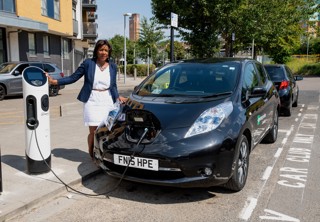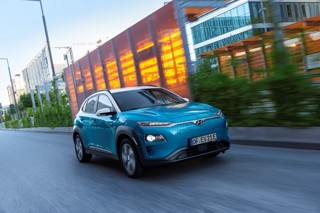Ofgem has set out proposals to support the millions of new electric vehicles (EVs) expected on Britain’s roads in the coming years.
The energy regulator says that more flexible use of the energy system will allow more EVs to be charged from the existing grid and reduce the need for expensive new power stations and extra grid capacity to be built.
It is consulting on plans which, it says, will reduce the cost to consumers of meeting the extra demand from plug-in vehicles, as well as connecting them and more renewable generation, battery storage and other new technologies to the grid.
According to Ofgem analysis, if owners use ‘flexible’ charging – where they only top up outside peak demand times on the grid – at least 60% more EVs could be charged up compared with ‘inflexible’ charging where they are only charged at peak times.
Flexible charging does this by allowing electric vehicles to be charged when energy prices are cheapest, for example when wind and solar power is generating lots of electricity or when there is less demand across the system.
Flexible charging also helps to keep energy costs down for all consumers as technology allows stored electricity from EV batteries to be sent back onto the grid when it is needed.
Its proposed reforms will give incentives for customers to charge their electric vehicles at the right time. It says they will free up existing grid capacity to allow new generators, including businesses or other organisations which want to generate their own power on-site, to get connected to the grid more quickly.
They would also make the electricity system more efficient by giving generators and other users more choice and flexibility on how they connect to the grid.
Jonathan Brearley, executive director, systems and networks at Ofgem, said: “Our reforms will help more users charge their electric vehicles and save them money.
“The proposals will also harness the benefits of electric vehicles and other new technologies to help manage the energy system and keep costs down for all consumers.
“The way we generate, transport and use electricity – and power our cars - is undergoing a radical transformation in Great Britain.
“Ofgem will ensure that the energy system is fit for this exciting, cleaner future and at the lowest cost for consumers.”
The Ofgem analysis looks at the impact of EV charging on typical household electricity demand across five scenarios.
It investigated the impact of charging at different speeds, and during different times of the day, and showed that when flexible chargers were used at least 60% more EVs could top up using the lower voltage electricity grids without needing to upgrade network infrastructure.
For flexible charging to work EV owners will need to use ‘time of use’ tariffs available through smart meters where, for example, the price of electricity can be cheaper outside peak time, when there is less strain on the electricity grid.
The Ofgem analysis is based on a previous study by the Energy Networks Association about managing integration of electric vehicles on the networks.
Ofgem intends to work with the industry to overhaul energy system rules and put the reforms in place between 2022 and 2023.
Chris Evans, deputy MD of engineering consultancy firm the Rolton Group, said: "The work to balance the energy supply and demand is becoming increasingly complex and range anxiety needs to be addressed by a network of fast chargers, which would have to be in place by 2020.
"The cost of delivering this has been quoted as £10 million, which seems a small price to pay to remove range anxiety and to assist in the up-take of EVs, particularly if we compare it to the £9.3 billion cost of HS2.
“As we move towards a low-carbon economy the UK is looking to become a leader in clean and efficient power for transport, but we must face up to the widespread challenges being created by this exciting but complex transport revolution.”






















Login to comment
Comments
No comments have been made yet.